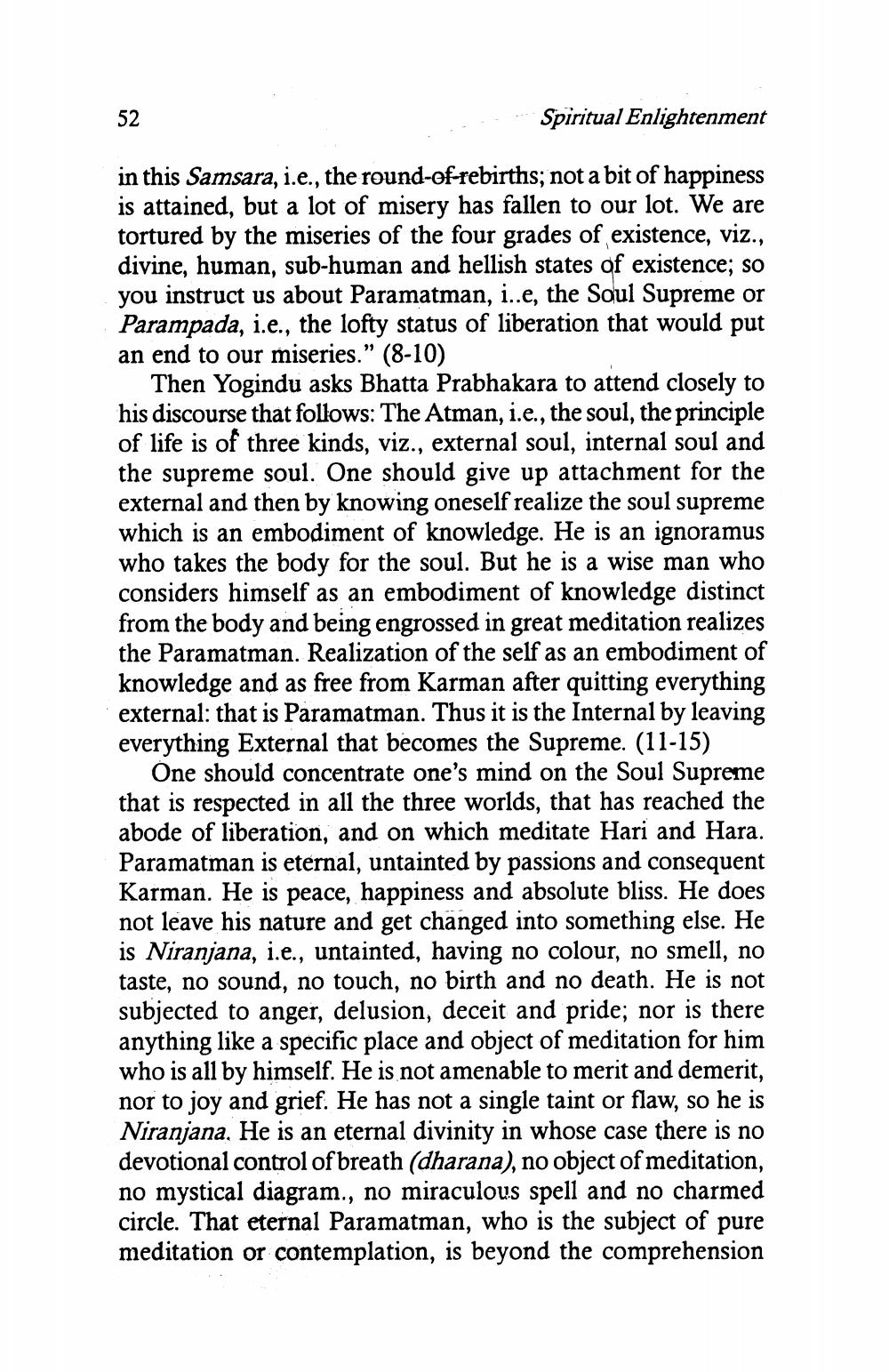________________
52
Spiritual Enlightenment
in this Samsara, i.e., the round-of-rebirths; not a bit of happiness is attained, but a lot of misery has fallen to our lot. We are tortured by the miseries of the four grades of existence, viz., divine, human, sub-human and hellish states of existence; so you instruct us about Paramatman, i..e, the Soul Supreme or Parampada, i.e., the lofty status of liberation that would put an end to our miseries." (8-10)
Then Yogindu asks Bhatta Prabhakara to attend closely to his discourse that follows: The Atman, i.e., the soul, the principle of life is of three kinds, viz., external soul, internal soul and the supreme soul. One should give up attachment for the external and then by knowing oneself realize the soul supreme which is an embodiment of knowledge. He is an ignoramus who takes the body for the soul. But he is a wise man who considers himself as an embodiment of knowledge distinct from the body and being engrossed in great meditation realizes the Paramatman. Realization of the self as an embodiment of knowledge and as free from Karman after quitting everything external: that is Paramatman. Thus it is the Internal by leaving everything External that becomes the Supreme. (11-15)
One should concentrate one's mind on the Soul Supreme that is respected in all the three worlds, that has reached the abode of liberation, and on which meditate Hari and Hara. Paramatman is eternal, untainted by passions and consequent Karman. He is peace, happiness and absolute bliss. He does not leave his nature and get changed into something else. He is Niranjana, i.e., untainted, having no colour, no smell, no taste, no sound, no touch, no birth and no death. He is not subjected to anger, delusion, deceit and pride; nor is there anything like a specific place and object of meditation for him who is all by himself. He is not amenable to merit and demerit, nor to joy and grief. He has not a single taint or flaw, so he is Niranjana. He is an eternal divinity in whose case there is no devotional control of breath (dharana), no object of meditation, no mystical diagram., no miraculous spell and no charmed circle. That eternal Paramatman, who is the subject of pure meditation or contemplation, is beyond the comprehension




